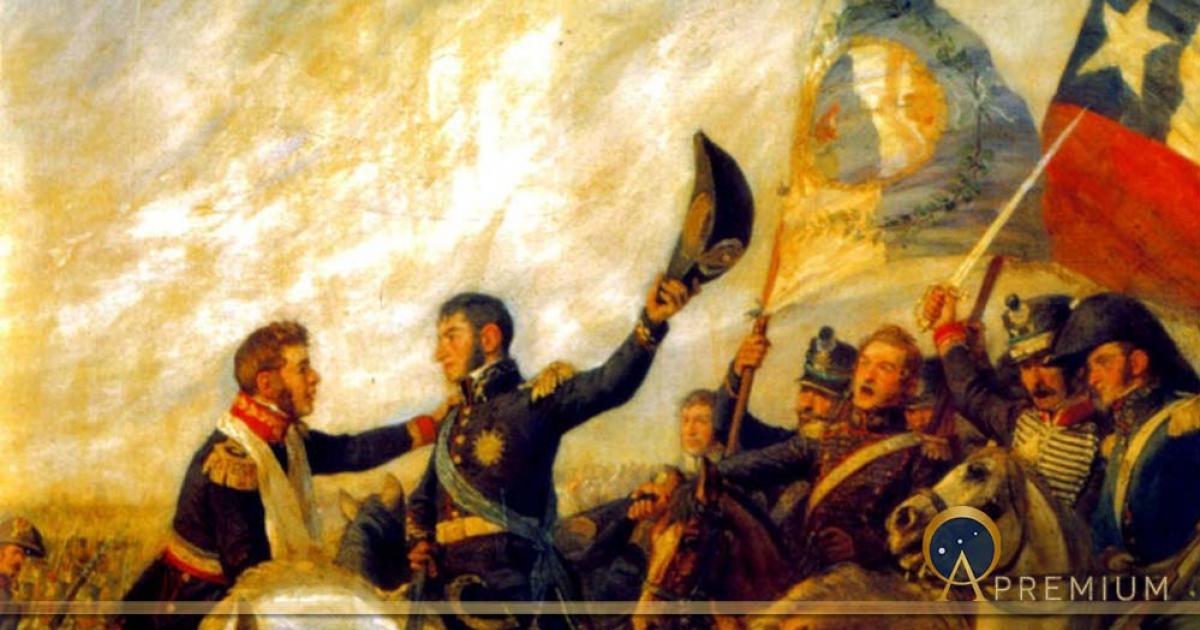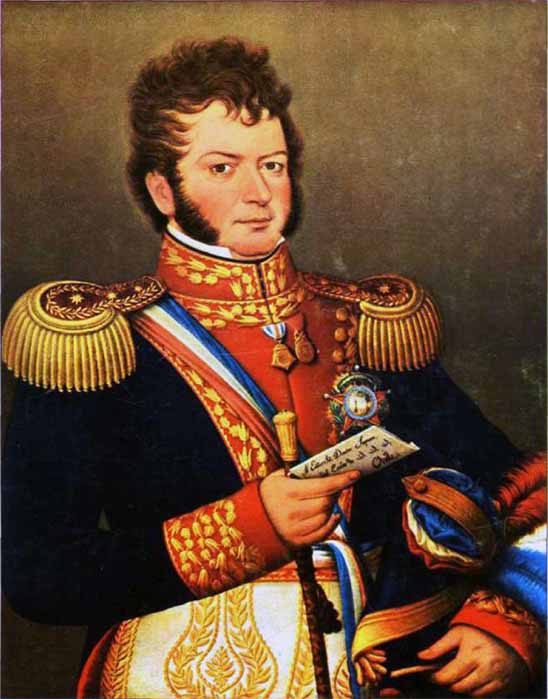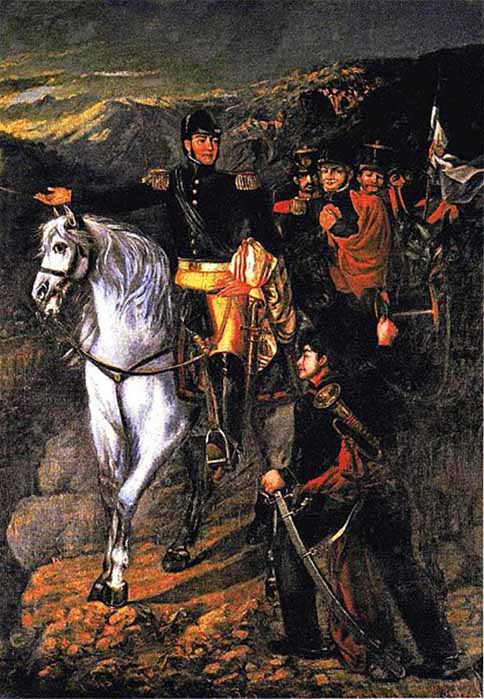
Irish Liberators In South American Independence Wars
For much of its history Ireland was just one of a legion of realms conquered by the British Empire in a morally reprehensible quest of world domination. The road to independence was long and arduous, and was particularly challenging during the 19th century when the British Crown was at the apex of its power. As a result, many Irish or Irish descended revolutionaries chose to employ their talents elsewhere, and to fight for a parallel cause that could be more realistically achieved. With the Empire of Spain collapsing, many inhabitants of the Emerald Isle decided to forsake their motherland for South America, where they contributed greatly to its liberation and later national development. Here are six of the most interesting tales.
Bernardo O’Higgins: Deliverer of the Chilean Nation
Born in 1778 in Chillán, Chile, Bernardo O’Higgins was the illegitimate son of María Isabel Riquelme de la Barrera y Meza, the daughter of a wealthy landowner, and Ambrosio O’Higgins, an Irish expatriate who had risen through the ranks of the Spanish colonial administration to become governor of Chile and viceroy of Peru.

Portrait of Bernardo O'Higgins holding the Chilean Constitution, by José Gil de Castro. Instituto Geográfico Militar de Chile (Public Domain)
Taken from his family to be formally educated under the guardianship of his father’s merchant friend Juan Albano Pereira, O’Higgins later returned to his mother’s fold to complete his schooling at a learning institute ran by Franciscan friars. It was here that he developed an appreciation Chile’s indigenous history. Following a short spell in Spain and a brief fling in England with the daughter of a respected headmaster, O’Higgins came into the orbit of a Venezuelan revolutionary based in London, Francisco de Miranda, and was moved by his call to liberate South America from the Spanish. O’Higgins would always fondly look back on his time in England, and for the rest of his military career he would surround himself with English advisors and soldiers.

Crossing the Andes, San Martín and O'Higgins, by Martín Boneo (Public Domain)
Returning to Chile, by 1813 O’Higgins was commander-in-chief of a faltering pro-independence insurrection. Outgunned at the Battle of Rancagua in 1814, O'Higgins and his family lost everything and fled to Argentina, where they scraped a living on the streets of Buenos Aires selling sweetmeats, mending clothes, and rolling cigarettes.
Like this Preview and want to read on? You can! JOIN US THERE ( with easy, instant access ) and see what you’re missing!! All Premium articles are available in full, with immediate access.
For the price of a cup of coffee, you get this and all the other great benefits at Ancient Origins Premium. And - each time you support AO Premium, you support independent thought and writing.
Jake Leigh-Howarth holds a masters degree in Modern History from the University of Leeds, where he specialized in the travelogues of Western visitors to Soviet Central Asia. His favorite historical periods include the Tamerlane Empire, the Mongolian Empire, and the Eleusinian Mysteries of Ancient Greece.
Top Image: O'Higgins meets Jose San Martin at the Battle of Maipu 1818, by Pedro Subercaseaux (Public Domain)
















Comments
"For much of its history Ireland was just one of a legion of realms conquered by the British Empire in a morally reprehensible quest of world domination."
It's odd how some see one reprehensible thing, but never seem to notice another more reprehensible and related threat.
Humanity is paying for its inability to learn from the past and to research the present.
This is the state of historical studies. It is full of half-truths and falsehoods regurgitated by those who appear incapable of understanding that which they are supposed to comprehend better than mere mortals.
The British Empire was but a small part of the current empire. This empire has been hidden, but is now increasingly obvious to all those who bother to look. The British Empire achieved its goal and was wound down and vilified as cover for the greater threat behind it.
The author of this piece doesn't appear to bother to look. The opening paragraph indicates this. My own lack of tertiary, or even secondary qualifications, is both irrelevant to that, yet completely relevant.
Some are smart, yet indoctrinated. The even smarter are either not indoctrinated or behind the indoctrination itself. Whichever that is merely depends upon personal morality and, to some extent, 'birthright' or lack of it.
Ireland was sandwiched between the Jesuits on one side and the British Monarchy on the other. Both are, and were, the same side. South and Central American rebels were funded by the same empire behind the Jesuits and the modern British Monarchy. This is division for conquest. It is a very successful strategy and a well-known one. However, I am yet to encounter the historian who actually understands it in any meaningful fashion, unless knowingly engaged in it (as some historians are). Hence, history is itself conquered.
If the author has read the novel, 1984, I suspect the author never understood it. I suspect the author of this article would have a fit at the distinct possibility that George Orwell (Eric Blair), as a Fabian, was writing from first hand knowledge as a member of the hidden empire, possibly just to gloat, be celebrated and to reveal the method, thereby gaining 'justifiable' authority for it. And by that empire I don't mean British, although he was certainly that.
I suspect the author wouldn't last long in a fair and proper debate upon this subject. However, that will never eventuate. I haven't read the article in entirety, for I shall not pay for it. Yet, that matters not.
This article contains false history. That should not surprise. In the battle between truth and propaganda, propaganda has the benefit of not being hidebound to inconvenient facts unsupported by popular opinion.
The Irish 'hero' was but another villain. Replacing one villain with another is not progress.